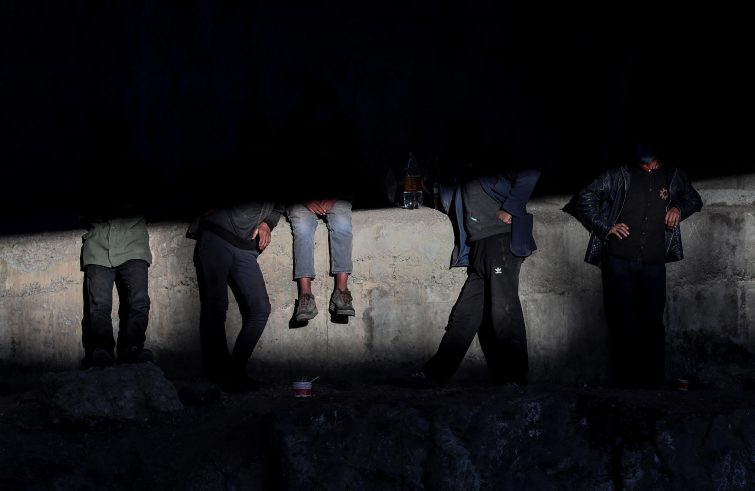
“I was born into a very poor Mexican family. I wanted to work to help my parents. So even though I was still a child, I gladly accepted my sister-in-law’s proposal to take care of the children of an acquaintance in another city. However, when I arrived, I was coerced into prostitution and threatened that if I refused, they would harm my family. I was not alone, there was also another girl, she too underage. We were beaten and raped. My parents were told I was dead.” Carmen’s story is similar to that of many other victims of trafficking for sexual and labour exploitation. Carmen was lucky enough to escape and meet nuns from the international network against trafficking, Talitha Kum, in her country: “I am now in a safe place, I am constantly in touch with my family and I returned to my studies, completing secondary school as honours student. I am seventeen, and it’s not easy for me. I am grateful for the new opportunity I have been offered.” Some 3,000 women religious and friends of the Talitha Kum network have launched the #CareAgainstTrafficking campaign to mark the World Day Against Trafficking in Persons on 30 July. The purpose of the campaign is to show that “care can make a difference along every step of the journey to combat human trafficking – care for those at risk, care for victims, and care for survivors.” The campaign will be launched on Talitha Kum’s social channels (Twitter, Instagram and Facebook). Everyone is asked to update banners, profiles and share their thoughts using the hashtag #CareAgainstTrafficking.
In Pakistan, exploited in a brick kiln. One of the stories recorded by the nuns involved a very poor Pakistani family with five children forced to work in a brick kiln, under the scorching sun and exposed to blazing flames, without pay for years, subjected to violence and abuse of women and children. “The parish priest and the nuns living in the area would regularly visit the kiln,” recalls the householder. “We did not tell them about our situation because the kiln owner was threatening us. But one day we took courage and shared our story with them. That day, my wife and I burst into tears: we had nothing to eat. The priest immediately gave us food. He welcomed us into the parish premises and offered us a job. I cooked and cleaned the house, while my wife worked in the convent. Our children could finally go to school.”
From Nigeria to Peru, the stories of Kate and Rosa. Then there is the story of Kate, in Nigeria, deceived by her aunt with a promised job and then forced into prostitution in a brothel in Egbeda. “One day, after having been beaten, she asked me to do an errand. That’s how I managed to escape and take refuge at an uncle’s house.” The case was reported to a human rights organisation which informed the police. “My aunt was arrested for trafficking in human beings.” On the other side of the world, in Peru, 19-year-old Rosa was saved just in time. She was looking for a job to pay her studies in culinary arts in order to become a chef. She answered an online job offer but when she went for the interview she was forced into a car. “They had seized my documents. Their plan was to take me out of the country at the end of the pandemic for sexual exploitation. I took advantage of a moment of distraction of my captor and managed to contact my family. The police swiftly intervened and arrested the owner of the restaurant. Now I am better and recovering, thanks also to the Talitha Kum Sisters, who are accompanying me and helping me to fulfil my dream.”
Over 17,000 women, men and children who survived human trafficking were helped and freed in the year 2020 by the courageous nuns of Talitha Kum worldwide,
just like Carmen, Kate, Rosa and the Pakistani family. They were provided with safe housing, educational and employment opportunities, support in accessing legal assistance and compensation, as well as healthcare and psychosocial services. During the same period, close to 170,000 people benefited from prevention and awareness-raising activities. Talitha Kum international was established by the International Union of Superiors General (UISG) in 2009. It coordinates 50 networks in more than 90 countries.
Appeal to citizens and governments. “We call on all people of good will to come together in tackling the systemic causes of trafficking in persons,” said Sister Gabriella Bottani, Talitha Kum international coordinator. Specifically, we call on governments to pledge to support survivors in the long term by ensuring quality education, job opportunities and permits, access to justice and reparations, along with medical and psychosocial support.” “Talitha Kum is engaged not only in supporting vulnerable and marginalised communities around the world – adds Sister Patricia Murray, UISG Executive Secretary – but also in tearing down the systems that enable their oppression and exploitation.”
Children victims of trafficking increased threefold. The latest findings of the “Global Report on Trafficking in Persons 2020”, released in February 2021 by the United Nations Office on Drugs and Crime (UNODC), show that the number of children victims of human trafficking has increased threefold in the last 15 years, while the share of boys has increased fivefold. Young girls are trafficked for sexual exploitation, while boys are used for forced labour.
Approximately 50,000 victims of human trafficking from 148 countries were identified and reported in 2018.
Yet the real number of trafficked victims is much higher: it is estimated that millions of people are exploited by well-organised international criminal networks. The most vulnerable, such as migrants and the unemployed, are the most targeted groups. According to UNODC, “the COVID-19 economic recession will result in more people at risk of trafficking.”










